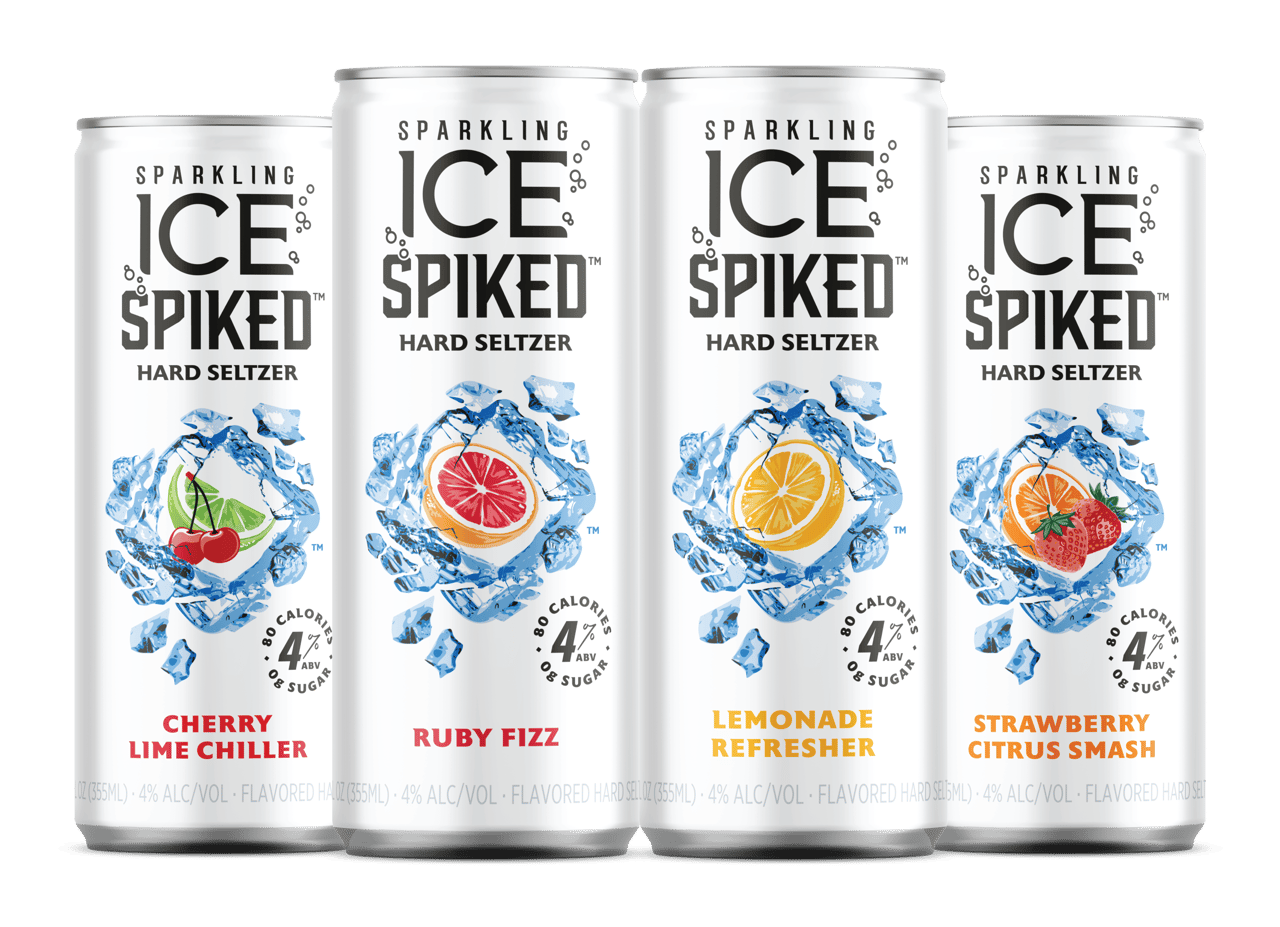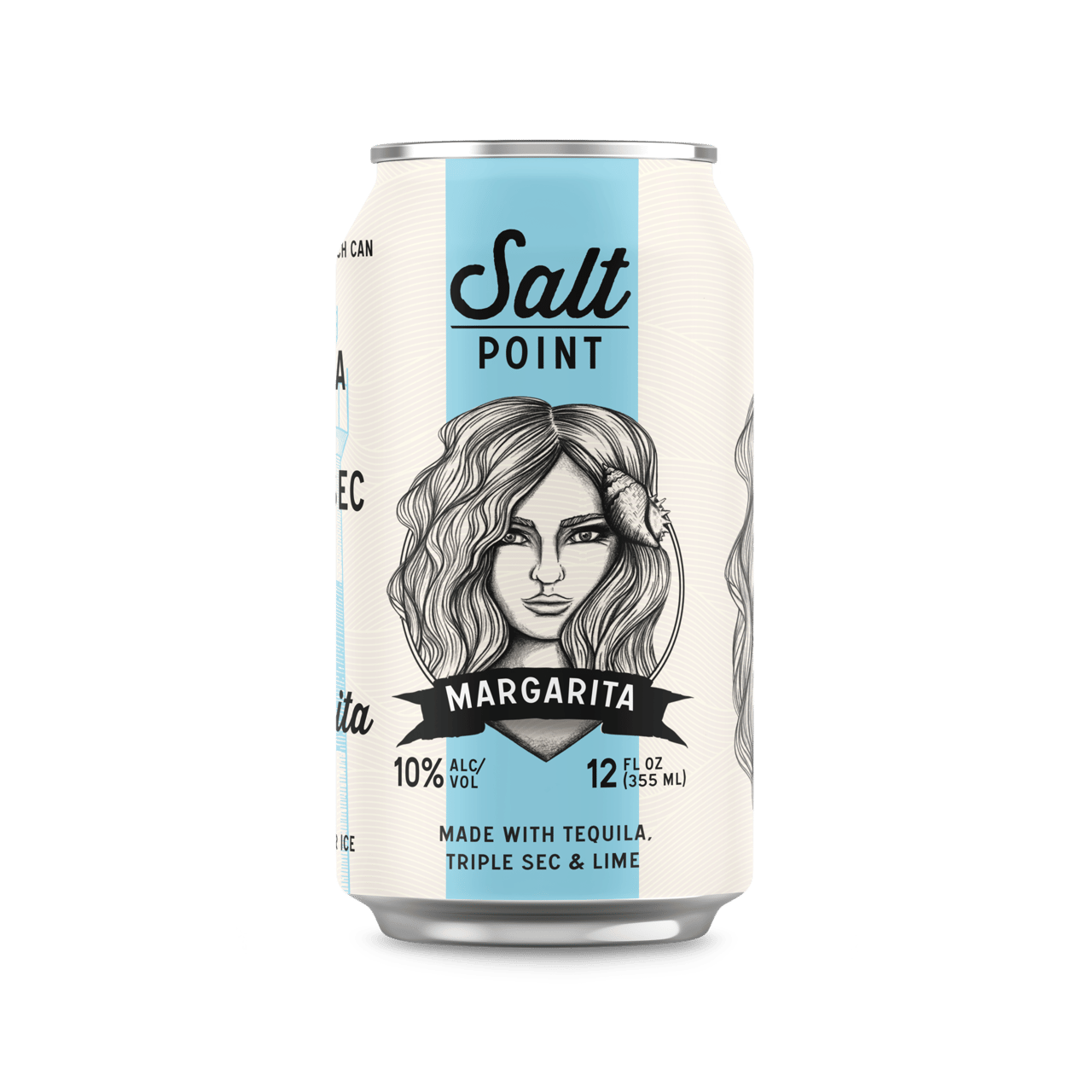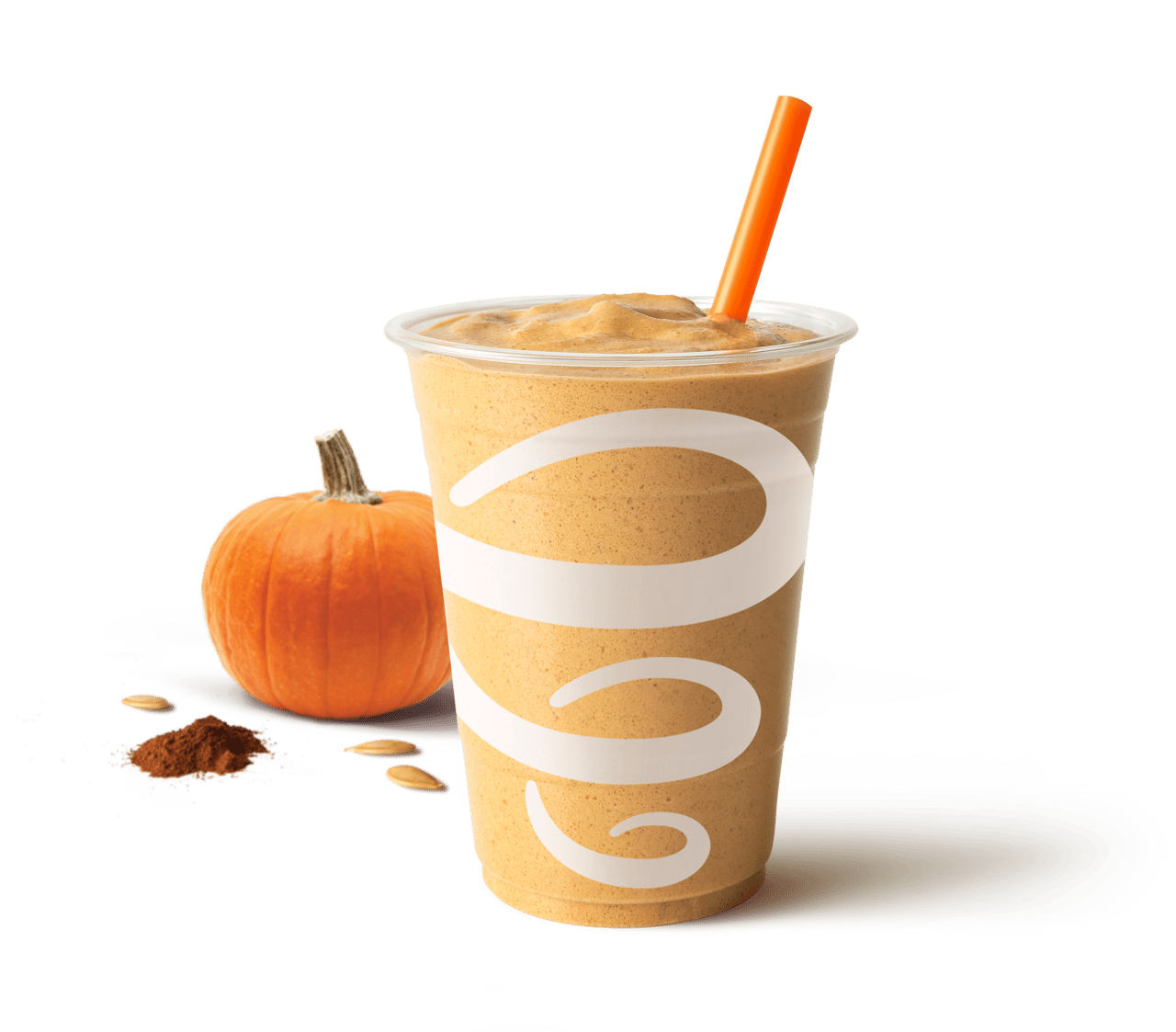By Barbara Harfmann | Managing Editor
Within the beverage industry, the competition for share of stomach and shelf space remains fierce. But in many cases, consumers are purchasing their favorite beer, wine and spirits through eCommerce, which is experiencing triple-digit growth. These traditional categories are the Top 3 categories at 61% and 56%, respectively, while light liquors (i.e., vodka, gin, light rum) comprise 44% of online sales on Drizly, while dark liquors such as whiskey and dark rum notched 33% of sales, according to the 2021 Drizly Consumer Report.
Yet, what is being purchased on the alcohol eCommerce site continues to shift and blur, according to Liz Paquette, head of consumer insights at Boston-based Drizly.
Blurring Lines, Increasing Competition
Drinks
Between

(Image courtesy of Talking Rain)
When it comes to flavored malt beverages (FMBs), one of the most popular subcategories — hard seltzers — continues to be a win-win, particularly among Gen Z and millennial consumers with slightly more females who are driving more than 75% share of hard seltzer sales on Drizly in 2021 to date, Paquette explains. “Hard seltzer share initially took off in 2019, particularly over the summer months, landing the category at 14% of beer share in 2019, up from 5% share in 2018 and 2% share in 2017,” she says.
The break-out drink of 2019, 2020 and 2021 has dozens of beverage companies, large and small, joining the hard seltzer craze, says Brian Sudano, managing partner at New York-based Beverage Marketing Corporation (BMC). “There’s been a multitude of new offerings from the three largest brewers — ABI, Molson Coors and Constellation — along with many craft beer players, small independents and beverage companies such as VPX (Bang Energy) and Talking Rain (Sparkling Ice) in a few years,” he says.
In July, the 4% ABV Sparkling Ice Spiked, a brand of Talking Rain, launched in more than 500 retail shops across the five boroughs of New York City, as well as Westchester and Long Island. Sparkling Ice Spiked is delivering real fruit flavor, with only 80 calories, zero sugar, and 1 gram of carbohydrates in four flavors: Ruby Fizz, Cherry Lime Chiller, Strawberry Citrus Smash and Lemonade Refresher, and is on pace to shatter expectations, the company says.
Yet, ready-to-drink (RTD) canned cocktails are playing off hard seltzer innovations and in the process, stealing some of its growth momentum, according to Drizly’s report. Despite the fact that the 2021 RTD share on Drizly is about half the size of hard seltzers, RTD canned cocktails, at 30%, are outplacing hard seltzers at 29%, it reports. “Year to date, RTDs share is growing at 15 times the rate of hard seltzers on Drizly,” the report states.
Just like hard seltzers, many new RTD canned cocktails are making waves in the market. In May, Salt Point Canned Cocktails unveiled a new 12-ounce RTD canned Margarita cocktail made with Blanco tequila using Blue Weber agave mixed with house-made triple sec, agave syrup, lime and just the right amount of carbonation, the company says. The fresh-tasting, ultra-premium Margarita is 10% ABV and is available in 11 states including California, Oregon, Hawaii, Nevada, Arizona and South Carolina and is newly available direct-to-consumer online at saltpoint.co. Founded by Heather Wyatt in 2013, Salt Point Beverage Co.’s new Margarita joins Moscow Mule, Greyhound and Gin Highball in the RTD portfolio.
According to the June 2021 IWSR Drinks Market Analysis, the RTD sector is now bigger in volume than the total spirits category in the United States, and is expected to overtake wine this year. And when it comes to where consumers will be enjoying their alcohol beverages, 80% will be drinking off-premise vs. 20% on-premise, it adds.
As summer fades into fall, read more on the war between hard seltzers, RTD canned cocktails and seltzer-centric spirits in Beverage Industry’s New Product Development Supplement. BI

(Image courtesy of
Salt Point Beverage Co.)
The Pleasure and Precious Moments Prosecco Brings
From Rome to London, Berlin, New York and Valdobbiadene, Italy, Mionetto embarked on a new multichannel campaign and a fascinating journey to bring the Italian dolce vita to several iconic cities around the world. The new campaign, Join Mionetto. More than just a Prosecco., connects Mionetta Prosecco to consumers worldwide. The campaign features two protagonists jumping from one place to the next, starting out at a formal event in Rome before stepping through a billboard poster to arrive in London, where they share a drink with friends. The spot evolves from the rooftops of New York to the birthplace of its brut sparkling white wine, the vast vineyards of Valdobbiadene — where they enjoy an aperitif with a small group of friends. More than 70 different commercial cuts and ad motifs are bringing the Italian ambiance, passion and pleasure to every country across all available channels: TV, print, digital, online video, cinema, out of home (OOH) and digital out of home (DOOH) on-the-fly messaging to showcase the brand in shopping centers, cinemas, restaurants, bars, gyms and petroleum stations.

Signaling the start of fall, all things pumpkin are resonating with consumers. Jamba is bringing back its fan-favorite Pumpkin Smash Smoothie and serving it up in two crave-worthy ways: Classic and Plant-Based. Made with Jamba’s original pumpkin spice blend, including pumpkin, cinnamon and nutmeg, Jamba’s plant-based smoothie features oat milk and So Delicious Dairy Free oatmilk frozen dessert, while the classic combines 2% milk and fat free vanilla frozen yogurt, the company says. Designed to taste like fall in a cup, the cool, creamy Pumpkin Smash Smoothie will be available through Nov. 15, or while supplies last. Jamba has stores in 34 states including Alabama, Colorado, Florida, Maryland, New York, Texas and Wisconsin.

In the midst of the current uncertainty surrounding the COVID-19 pandemic and the Delta variant (B.1.617.2), Euromonitor International’s “Top 10 Global Consumer Trends 2021” report notes that consumers are looking for new ways to make life convenient and safe and are seeking holistic, resilient solutions, more thoughtful consumption, and, in some cases, a way to fight back.
The market research firm’s Top 10 trends provide insight into changing consumer values, and how consumer behavior is shifting and causing disruption for businesses globally. The pandemic also has created, influenced or accelerated the follow 10 trends: Build Back Better, Craving Convenience, Outdoor Oasis, Phygital Reality, Playing with Time, Restless and Rebellious, Safety Obsessed, Shaken and Stirred, Thoughtful Thrifters and Workplaces in New Spaces.
The report includes the following takeaways:
BUILD BACK BETTER
Consumers demand that companies care beyond revenue, and they no longer perceive businesses as profit-driven entities. Protecting the health and interest of society and the planet is the new expectation, following COVID-19, in order to Build Back Better. Companies should help reshape the world in a more sustainable way, leading a shift from a volume — to a value-driven economy and turning the tide on social inequity and environmental damage.CRAVING CONVENIENCE
Consumers are craving the convenience of the pre-pandemic world, longing for the ease taken for granted before daily habits were upended. Businesses are under pressure to rapidly adapt their operations to develop a resilient customer experience while maintaining convenience. Companies must preserve the swift and seamless shopping journey across all channels.PHYGITAL REALITY
Digital tools allow consumers to stay connected while at home and re-enter the outside world safely as economies reopen. Phygital Reality is a hybrid of physical and virtual worlds where consumers can seamlessly live, work, shop and play both in-person and online. Delivering virtually enabled at-home experiences remains imperative to drive eCommerce sales and gather data.RESTLESS AND REBELLIOUS
Companies can cater to the Restless and Rebellious through more precise marketing on social media and gaming, where they can give consumers a voice and pressure social giants to take on misinformation.
SAFETY OBSESSED
Safety Obsessed is the new wellness movement. The fear of infection and increased health awareness drive demand for hygiene products and pushes consumers toward contactless solutions to avoid exposure. Companies should implement enhanced safety measures and innovations that target concerns to reassure consumers.
THOUGHTFUL THRIFTERS
Discretionary spending is declining because of the uncertain economic environment. Thoughtful Thrifters are prioritizing value-added and health-conscious products and services. Companies should pivot toward value for money propositions, offering affordable options without sacrificing quality. Premium attributes should be reinforced with a new empathetic story and have a strong tie-in with health and wellness, self-care or mental well-being.SHAKEN AND STIRRED
Consumers have a new understanding of themselves and their place in the world in pursuit of a more fulfilled, balanced and self-improved life. Businesses must provide products and services that support resiliency for mental well-being and to help Shaken and Stirred consumers weather adverse circumstances to gain trust.
— From Euromonitor International’s “Top 10 Global Consumer Trends 2021” report,
www.euromonitor.com/top-10-global-consumer-trends-2021/report

As football season gets underway, Skrewball Peanut Butter Whiskey has inked a deal as the “Official Whiskey of the Buffalo Bills.” As a result, Skrewball branded bars featuring uniquely created cocktails made with the 35% ABV flavored whiskey can be enjoyed inside the Pepsi Club and Toyota Club at Highmark Stadium. “Skrewball is a great product with a great story and has quickly become a staple at tailgates and games across the United States,” said Dan Misko, Pegula Sports & Entertainment senior vice president of business development, in a statement. “We’re proud to welcome Skrewball Peanut Butter Whiskey as the Official Whiskey of the Buffalo Bills.” Available nationwide and in Canada and the Caribbean, the 70 proof boozy peanut butter brand was created by Steven Yeng, a Cambodian refugee and polio survivor while he was bartending in California. He partnered with his wife, Brittany Yeng, a chemist and lawyer, to further develop the brand. Made using real peanuts and premium ingredients, Skrewball Peanut Butter Whiskey can be consumed straight, on the rocks, in a shot with a recommended sea salt rim, or even for a new twist in a creamy piña colada or other premium craft cocktails, the company says.
A Unique Combination
September 2021 | bevindustry.com

